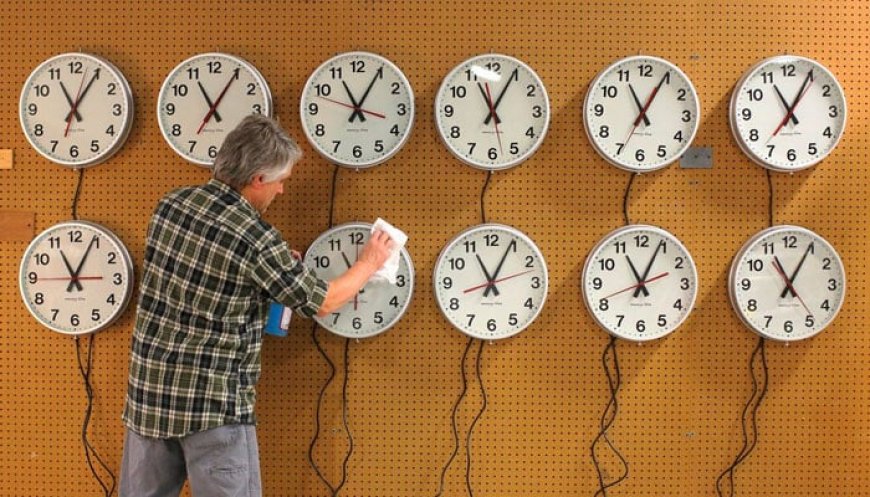Daylight saving time 2024: When will clocks be adjusted and what's its origin?

1. In UK and other European countries, daylight saving time, also known as summertime, ends on October 27
**Daylight Saving Time: Ongoing Debate Over Its Future**
Daylight saving time (DST), a practice impacting nearly 400 million people across North America, is once again under scrutiny as public opinion and legislative efforts challenge its relevance.
This biannual clock adjustment—moving forward in spring and back in autumn—has been part of life in the U.S., Canada, and Cuba for over a century. However, shifting sentiment and new proposals are prompting renewed discussion on its practicality today.
---
### **When Do the Clocks Change?**
In the U.S. and other participating countries, daylight saving time will end on **November 3, 2024, at 2 a.m.** local time. Residents will gain an extra hour of sleep, with brighter mornings but earlier sunsets. The mnemonic **"spring forward, fall back"** helps people remember the changes.
In the UK and European countries, where DST is referred to as **summertime**, it will end on **October 27, 2024**.
- **US DST schedule:** Begins on the **second Sunday of March** and ends on the **first Sunday of November**.
- **UK/EU DST schedule:** Runs from the **last Sunday of March** to the **last Sunday of October**.
---
### **When Is the Shortest Day in 2024?**
The **winter solstice**—the shortest day of the year—falls on **December 21, 2024**. Northern latitudes will experience extremely limited daylight, with areas near the North Pole in complete darkness, while southern regions still enjoy over 10 hours of sunlight.
Looking ahead, DST will resume on **March 9, 2025**, and end on **November 2, 2025**.
---
### **Origins of Daylight Saving Time**
The modern idea of DST dates back to **George Hudson**, a New Zealand entomologist, who proposed it in the late 19th century to conserve energy and extend daylight hours for his insect-collecting hobby.
DST gained traction during **World War I** when Germany became the first country to implement it in 1916 to conserve fuel. The U.S. adopted DST two years later, in **1918**.
After years of adjustments, the practice was standardized by the **Uniform Time Act of 1966**, which allows states to opt out of DST but prohibits them from adopting it year-round without federal approval.
---
### **Controversy Surrounding DST**
A common misconception is that DST benefits farmers. In fact, many farmers oppose it, arguing that it disrupts their schedules.
The original aim of conserving energy is also under debate. Studies show little to no energy savings, according to the **U.S. Congressional Research Service**.
Opponents cite potential health risks, such as increased rates of **heart attacks, strokes, traffic accidents, and sleep deprivation** following the March transition.
A **2023 YouGov poll** revealed that **62% of Americans** want to end the clock-changing practice, though opinions differ: only 50% support permanent DST, while others prefer standard time.
---
### **Which US States Don’t Observe DST?**
- **Hawaii** and most of **Arizona** (excluding the Navajo Nation) do not observe DST.
- US territories, including **American Samoa, Guam, Puerto Rico, the Northern Mariana Islands**, and the **US Virgin Islands**, remain on permanent standard time.
Meanwhile, **19 states** have passed legislation to adopt permanent DST, pending federal approval.
---
### **Is the US Ending Daylight Saving Time?**
While DST remains in place, federal efforts are underway to end the practice of clock changes.
The **Sunshine Protection Act**, a bipartisan proposal, seeks to make DST permanent. Although the **Senate approved** the bill in 2022, it stalled in the **House of Representatives** due to disagreements over whether to keep standard time or DST year-round.
The bill was reintroduced and is currently under review by the **Committee on Commerce, Science, and Transportation**. It must pass both chambers of Congress before being signed into law by **President Joe Biden**.
---
The future of DST remains uncertain, but with ongoing debate and legislative action, changes may be on the horizon for this long-standing practice.

















































